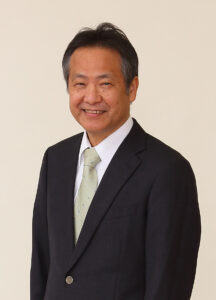BABA Takuya
Professor
- Ph.D., Hiroshima University
- takuba[a]hiroshima-u.ac.jp
*Please replace [a] with @ when sending e-mail.
Major Professional Backgrounds
- Hiroshima University, Graduate School for International Development and Cooperation, Associate Professor (2003-2010)
- Hiroshima University, Graduate School for International Development and Cooperation, Assistant Professor (2001-2003)
- University of Tsukuba, Visiting Researcher (2004-2005)
- Ministry of Education, Culture, Sports, Science and Technology Japan (2004-2005)
- Hiroshima Prefectural Women University, Part-Time Lecturer (2004)
Please refer to the following link for more research achievements. Takuya Baba (hiroshima-u.ac.jp)
Research Areas and Themes
My specialization is mathematics education research. Mathematics is one of the most universal languages which can be used beyond cultural differences. Mathematics education, however, concerns the process in which the children who live in the culture acquire such a universal language, and they sometimes are not able to acquire it effectively. Here the cultural difference brings such difficulty. The current society in which we live is highly information-based and experiences technological advancement, digitization, and connectedness through ICT. Such connectedness through ICT blurs the distinction of mathematics education between developing and developed countries. Then, we return to the universality. We think mathematics education occurs by moving back and forth between universality and specificity.
In developing countries, there are only a few studies on the basis of curriculum development. I am currently conducting a field survey on basic mathematics competence in Zambia and consider this survey as a model for forming the basis of curriculum development. This is an endogenous curriculum development based on the evidence collected. On the other hand, in Japan, there is a famous open-ended approach to mathematics education. Values sometimes surface in such a problem-solving process. I proposed a social open-ended problem to utilize such values. Through this, I am thinking about the possibility of mathematics education in connection with future mathematics education and mathematics education in the world.
【Keywords】Mathematics education curriculum, endogenous curriculum development, problem solving, social open-ended problem, critical thinking, basic computational competence
Research Areas and Themes of the Students
A variety of themes in mathematics education: Curriculum occupies a central position in subject-based education. When considering mathematics education internationally, mathematics curriculum development, culture, value, and ethnomathematics are key words. Recently, STEM and critical thinking have emerged as topics. To improve the curriculum, ideas of lesson study, mathematical knowledge for teaching, and related topics are becoming important.
The main research topics of the supervising students are as follows:
-
Identifying Mathematics Teacher Educators’ Professional Learning and Issues in Lesson Study Approach in Laos
-
Development of an Ethnomathematics Curriculum through Emergent Modelling in an Indonesian Primary School
-
Examining Venezuelan Secondary School Mathematics Teachers’ Statistical Knowledge for Teaching: Focusing on The Instruction of Variability-Related Concepts
Message to Prospective Students
The feature of this program is that international students, Japanese new graduates, and Japanese individuals with working experiences such as private company employees and international volunteers study together on the same theme. Japanese and international students study Asia, Africa, and other countries.
Website
- Special Lecture at Naruto University of Education, December 16, 2022

